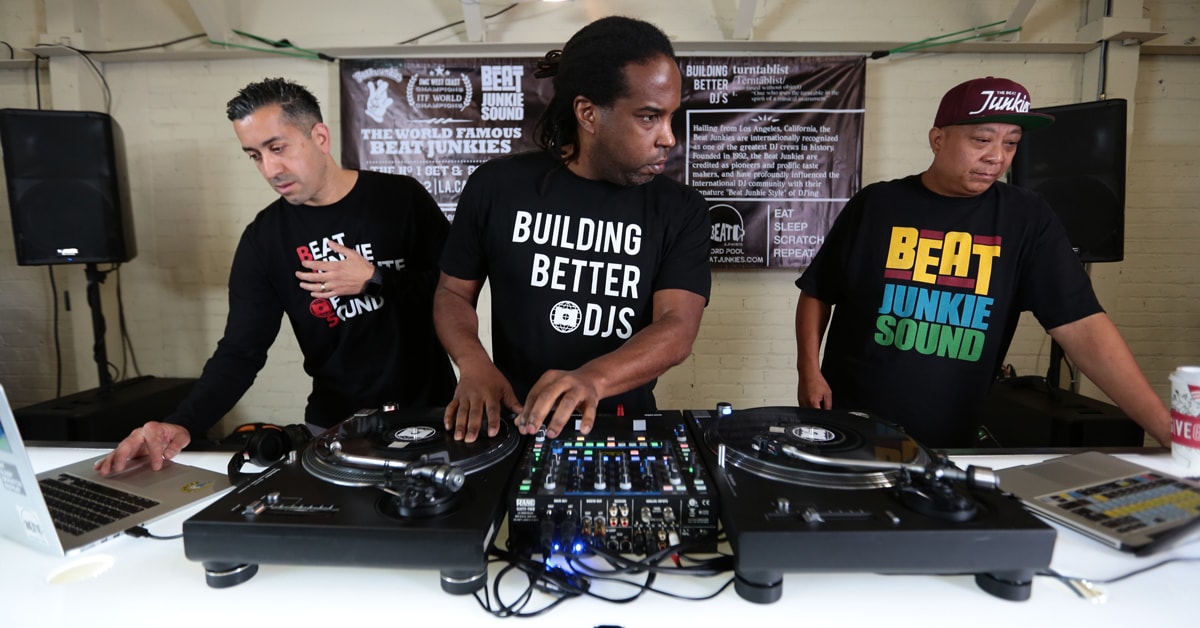After getting our hands on the brand new Technics SL-1210GR turntable, we connected with some of the most respected DJs in Hip Hop culture, the Beat Junkies, to give the new decks a spin. The world famous Beat Junkies are a DJ crew from Southern California, responsible for scratching and mixing on some of the most iconic mixtapes of the ‘90s. These projects featured and helped break artists such as Eminem, Mos Def and Pharoahe Monch amongst other luminaries. Straight from their newly built Beat Junkie Institute of Sound, there's no better crew of technically skilled turntablists to teach you how to scratch.
Learning the “Baby Scratch”
To get started, Mr. Choc takes us through the fundamentals of the elementary, yet all important, “Baby Scratch.” The Baby Scratch teaches the arm motions of creating a basic scratch sound while keeping up with the tempo of your backing track. Though this scratch is simple enough for most DJs to perform, it is imperative to keep track of fundamentals such as keeping an eye on your visual marker. The distance you move the vinyl correlates with the tempo of your scratch sound.
Learning the “Tear Scratch”
Next, Melo-D takes us through the intermediate, “Tear Scratch.” This technique requires a DJ to make three motions with the arm: one move forward, and two motions back. The additional motion while moving the record back creates a different sonic character than the “Baby Scratch.” Though this scratch is a lot more challenging to keep on-beat, using the fundamentals of controlling distance by using your visual marker will help you make sure your cuts stay on beat.
Learning the “2-Click Flare”
Lastly, DJ Babu shows us the advanced scratch technique called the “2-Click Flare.” This scratch technique implements the use of the cross-fader on your DJ mixer. This method starts with the fader in the open position, is followed by one move forward, two clicks on the cross-fader, one motion back on the record, with two more clicks on the cross-fader. Babu reiterates the importance of beginning and ending this scratch with the cross-fader in the open position on your DJ mixer. This technique requires a bit more rhythm and coordination than the more basic techniques.




